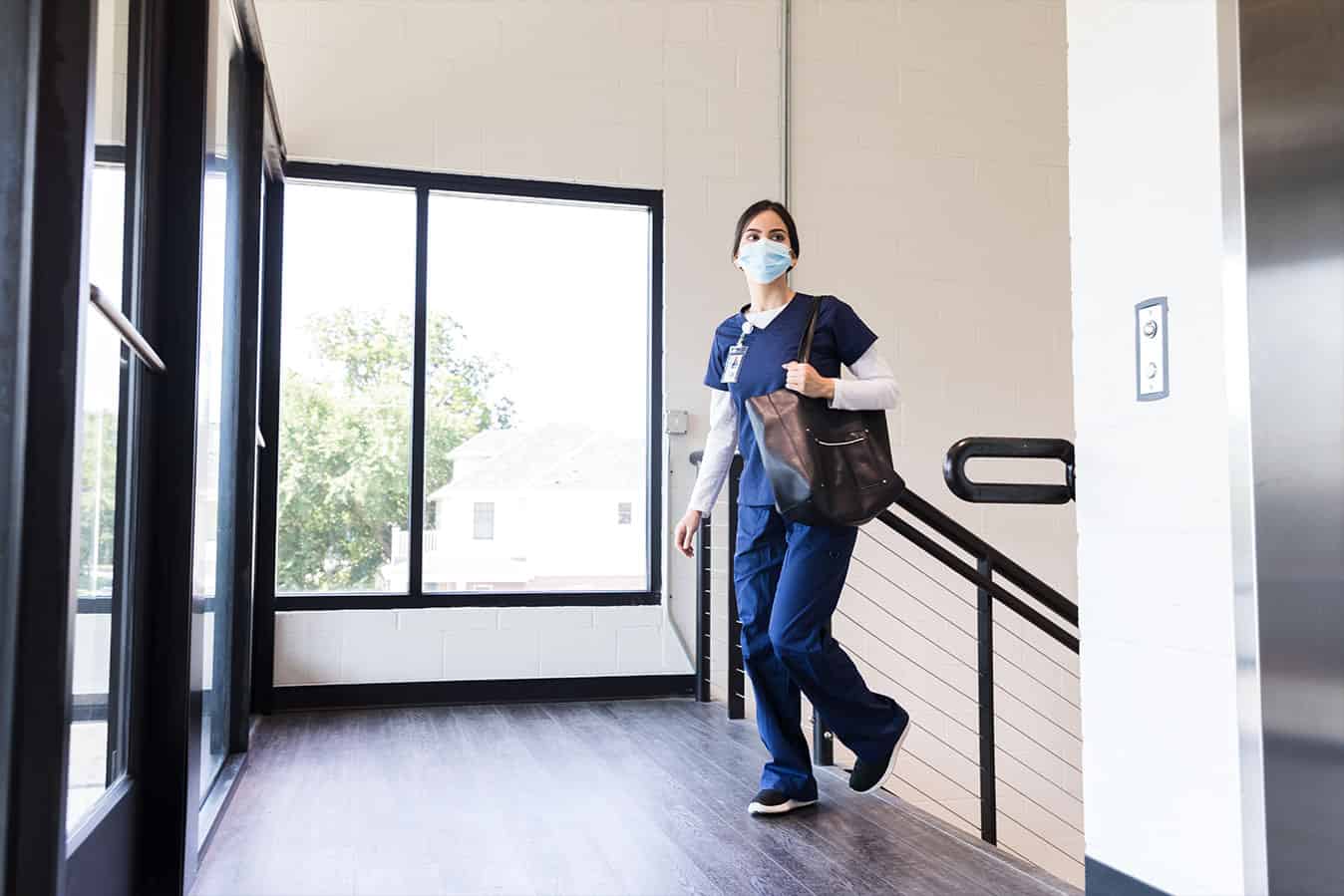Clinical placements give undergraduate nursing and midwifery students the opportunity to transfer theory into practice and consolidate their knowledge and skills.
Registered nurse, Dr Tanya Langtree is a lecturer in Nursing and Midwifery at James Cook University, and Academic Lead: Practice Integration, providing on the ground support for students undertaking clinical placement in the Townsville region.
JCU has about 1,000 undergraduate nursing and midwifery students across four campuses. Students undertake clinical placements in a variety of settings including hospitals, medical clinics and residential aged care facilities.
A series of Professional Experience Placement briefings are held for first year students early on in their studies so they have a sound understanding of the clinical placement structure and their obligations in preparing for and attending placement.
Topics discussed during these briefings include explaining pre-placement requirements, such as what paperwork needs to be submitted beforehand, what to expect on placement, appropriate conduct while on placement, setting goals for placement, and being proactive while on placement to ensure students make the most of the opportunity.
Tanya says being prepared is crucial, so it is important that students have access to key contact information, such as their facilitator’s phone number and email.

If they are heading to a new unit or hospital, she suggests students take into account travel time, and even being aware of things such as parking fees.
She says the first year of nursing us about learning the fundamentals – such as principles of medication administration, how to assess patients, and person-centred care.
“As the years go on, students advance their ability to link theory to practice,” Tanya says.
“They learn more complex assessment skills and interventions and their scope broadens as they progress through their degrees.
“For first year students, it’s always important that they remember that they’re not expected to know everything. They only know a small piece of the puzzle at this point in time and need to work within that scope.”
Tanya shared her top tips on how to thrive on clinical placement with the ANMJ.
Be prepared
Tanya says it is important that students invest time into reading the Professional Experience Placement (PEP) documents that they will be assessed on, familiarise themselves with the standards, and read the orientation manual for the ward.
“You’ll then be able to develop goals that are actually meaningful and targeted for that placement, which will in turn increase your enthusiasm for learning. When you’re well prepared, facilitators and staff you’re working with are also more likely to take you under their wing.”
Be proactive
Clinical placements offer a chance to link theory to practice, so Tanya encourages students not to turn away learning opportunities and, instead, seek them out.
“By that I mean, just because you may have done one injection, do as many as possible. Don’t ever turn away learning opportunities that you may see as routine care because you learn something different every day as a nurse and you learn how to adapt a clinical intervention to best meet that person’s current situation and needs. It is also important to not be focused purely on tasks; instead you should be person-centred wherever possible.”
If unsure, ask for help
“Nurses don’t know everything, we never will know everything, so don’t be afraid to seek out clarification. That’s what your facilitator is there for. They can also point you in the right direction.”
Create a work-life balance
Tanya says it’s important students get plenty of rest prior to going out on placement and get enough sleep, eat a balanced diet, and find time for exercise while undertaking placement.
“Nursing work is stressful work. We work in dynamic clinical environments. You never know what you’re going to get, so you actually have to make sure you practice good self-care to ensure you can perform at your best while on placement.”
Embrace learning opportunities
Tanya says students need to be prepared while on clinical placement and be enthusiastic for learning.
“Never sit back. Even if it’s quiet on the ward, there’s always something to do, whether that’s talking to the patients you’re caring for, or even restocking the utility room where the equipment is so when somebody asks you to get that in an emergency you know exactly where it is. Learn, be a sponge, and take from those experiences nurses what they’ve learnt.”








